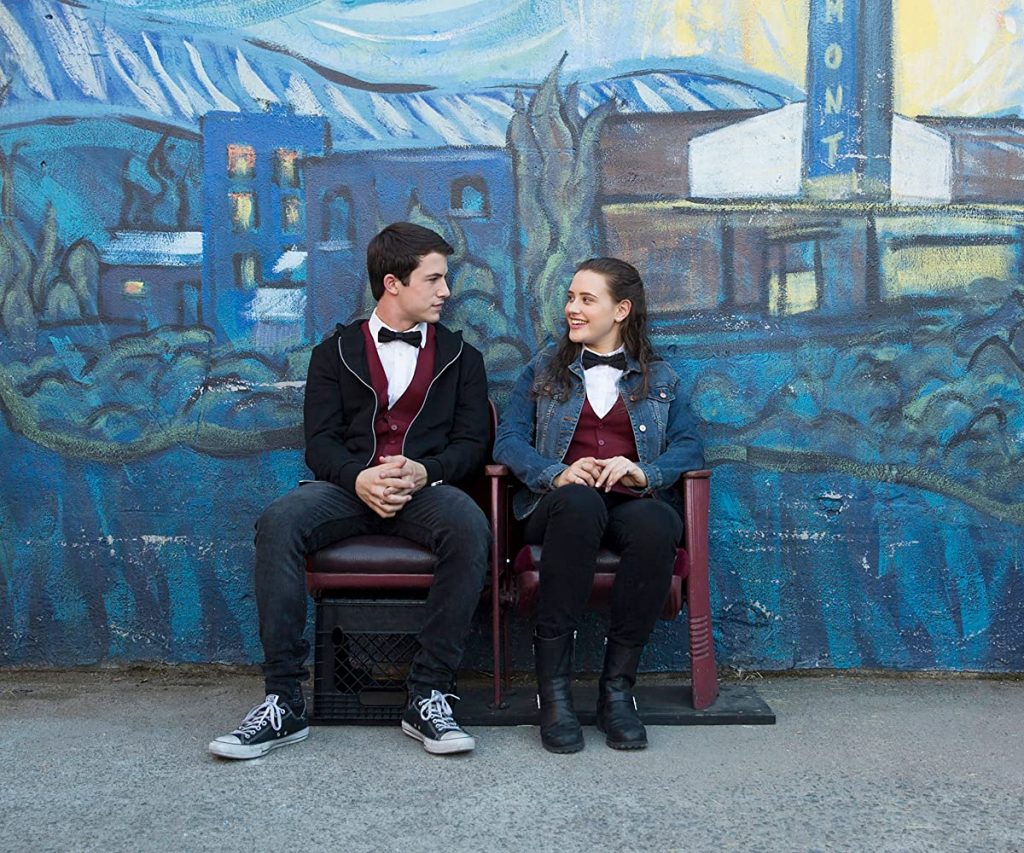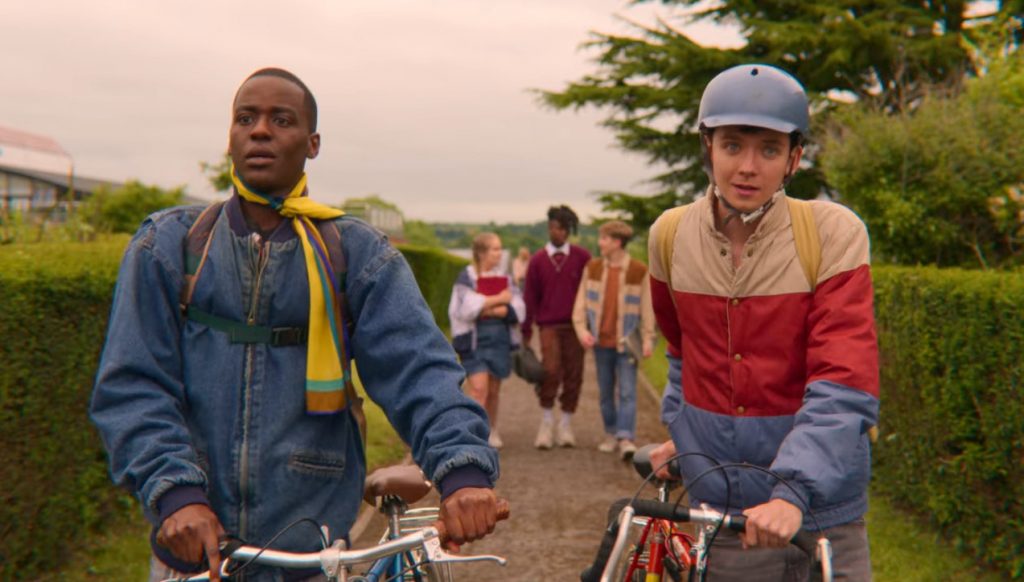By Ella Rowe-Hall
Teen dramas. The occasionally cringe-inducing yet always loveable, dramatic slices of the lives we often wished we ourselves could have led during our own teenage years. Though it feels like they have been dominating Netflix since the dawn of time, the genre only truly took form during the early 1990’s. Whilst many teen drama fanatics could never overlook the staple that is Gossip Girl, the true catalyst was in fact Beverly Hills, 90210. It is essentially responsible for the genre’s creation and prominence today.
Beverly Hills, 90210 was undeniably popular during its ten-year reign for the entirety of the naughty nineties, generating millions of views on American channel, Fox. Darren Star’s creation follows a group of teenagers residing in the very wealthy Beverly Hills, battling the difficulties of high school life, college and their early adulthood. While the drama classic naturally swifts between different types of friendships, family and relationship problems, it also highlighted several prevalent social issues; alcoholism, to teen pregnancy and AIDS. By demonstrating this level of seriousness and social commentary of the ÔÇÿreal world’, no matter how dramatised, the show’s visible representation of such issues in a sought-after teen drama not only enlightened viewers, but also resonated with its target audience. Teenagers.
Just as popular, Gossip Girl continued the success of its teen drama predecessor, prevailing over the later noughties from its very first episode in September 2007 until its finale in 2012. Gossip Girl tells the tales of troubled teens, navigating life in the restless and ruthless elite city of New York’s Upper East side. Gossip Girl portrays a merciless and anonymous blogger who exposes the main character’s every secret, proving the teens are never safe from their most haunting truths. This concept itself symbolises how a single post or message in our own online lives can immensely impact a person’s life. Gossip Girl also addresses further taboo social issues, building upon Beverly Hills, 90210‘s approach to alcoholism and mental health. Seen with Serena van der Woodsen’s character struggles with substance abuse in the earlier series and her brother, Eric’s suicide attempt.

Upper East side’s it crew. Gossip Girl (2007)
Photo: Imdb
As touched upon within the context of Gossip Girl, one of the most prevalent issues within the 21st century teen drama genre is mental health, the central focus of Netflix’s 13 Reasons Why. First released in 2017, Selena Gomez’s produced series follows Clay Jensen’s journey to uncover the truth behind the heart-breaking suicide of his love interest Hannah Baker; after discovering the cassette tapes she had recorded before her death at his doorsteps.
Unlike the previous archetypal teen drama genre tropes, 13 Reasons Why’s undeniably intense and dark tone highlights a very different angle of the teen drama; suicide. The series focuses on the impact of bullying, and how it can cause catastrophic and irreversible consequences. The series explores the volatility of teenager’s mental health, as many teens today are flooded with social abuse from their peers, regarding anything from their appearance, personality, sexuality or even hobbies.
Arguably the series’ message crossed the line of acceptability, with many complaints from mental health professionals and parents claiming the graphic original scene of Hannah Baker’s suicide glamorised mental health problems. Following the controversy, the problematic scene was cut out from the drama more than two years on from its premier; with a disclaimer featuring several of the actors being added to the first episode as well.
As well as tackling mental health, 13 Reasons Why further intensifies the teen drama genre by discussing the prevalent issue of sexual assault in today’s society. Hannah Baker is just one of several other characters who were affected by sexual violence on the show. Although the series neglectfully overlooked ways to inspire victims to speak out and empower themselves, it did pave the way for programmes like Sex Education, which shows the topic of sexual assault through a lens of female empowerment and unity.

Dylan Minnette and Katherine Langford in 13 Reasons Why (2017)
Photo: Imdb
Alternatively, Riverdale, a teen drama mystery, swaps the big city setting for a small and seemingly innocent US town that is truly rife with both teen and adult drama, problematic relationships and crimes. You know; murder, gang activity and Ms Gundry’s predatory lust over teenage boys! Whilst it merges teen drama with more traditional genres to create a unique and fresh series, the show feels almost like a bad fever dream due to its seriously questionable script, outlandish plot and some acting. Yet despite this, Riverdale seemingly changes the genre’s landscape by merging multiple genres which touch on gritty issues like gang violence and hate crimes. Though be it in an overly-dramatised way.
While America is seemingly the ruling country of teen dramas, it originated there after all, its popularity has encouraged more European countries to explore teen television.
The Spanish Netflix series Elite reached generous popularity for its similar combination of mystery and teen drama like Riverdale. Much like its predecessor Gossip Girl, Elite focuses on the idea of class and status, as three working class students join a very wealthy private Spanish school. Soon enough, drama follows with the clash between the new and old students leading to a murder investigation! Naturally, it would not be a teen drama without the traditional tropes of diverse and dramatic relationships that raises the tension during the journey for justice and truth.
Needing little emphasis on its success, British Netflix series Sex Education is changing the landscape of the genre as we know it. Debuting in January 2019 and amassing an incredible 40 million streams, the show is highly praised for its unique take on the concepts of healthy relationships and boundaries and frank representations of sexuality. Following the socially awkward Otis Millburn, and his larger than life, best friend Eric Effiong, the series creates an open environment in the conversation on sexual education and health. Though his mother is a sex therapist, Otis is rather reluctant to become a walking sexual advice manual for his classmates. However, after teaming with his partner-in-crime, smart-bad girl Maeve Wiley, they end up using Otis’ knowledge on the subject to create an underground sex therapy clinic for his classmates in exchange for money.

Asa Butterfield and Ncuti Gatwa in Sex Education (2019)
Photo: Imdb
While the available two seasons of Sex Education are jam-packed with a variety of complex, hilarious and captivating characters with quirks to make you laugh, and fall in love with; it is also filled with sincere and empowering conversations on issues still lurking in today’s society. One of the programmes’ most memorable and iconic moments is the bus scene from season two. After learning that the one thing banding them together is the patriarchy when in detention, the main female characters symbolically unite and help Aimee Gibbs overcome her fear and anxiety of getting on the same bus after she had become a victim of sexual assault on. The simple yet extraordinary act of these teenage girls holding hands in the face of danger captures the series so perfectly. In its honest representation of Aimee’s trauma and the moving portrayal of sisterhood and female empowerment, Sex Education encapsulates some key teachings of today’s modern world. Sisterhood.
Via Netflix
Though some elements of the teen drama genre are overly dramatised, the genre has proven to be very integral in the representation of social issues considered controversial or taboo. While some series chose to expose the worst-case scenarios, many highlight how overcoming issues can be empowering, allowing you to grow into a more powerful version of yourself. So, in the words of Sex Education’s Otis, no matter who you are, what you struggle with or who you’re afraid to be: “You are who you are. Don’t let anyone take that away from you.”


